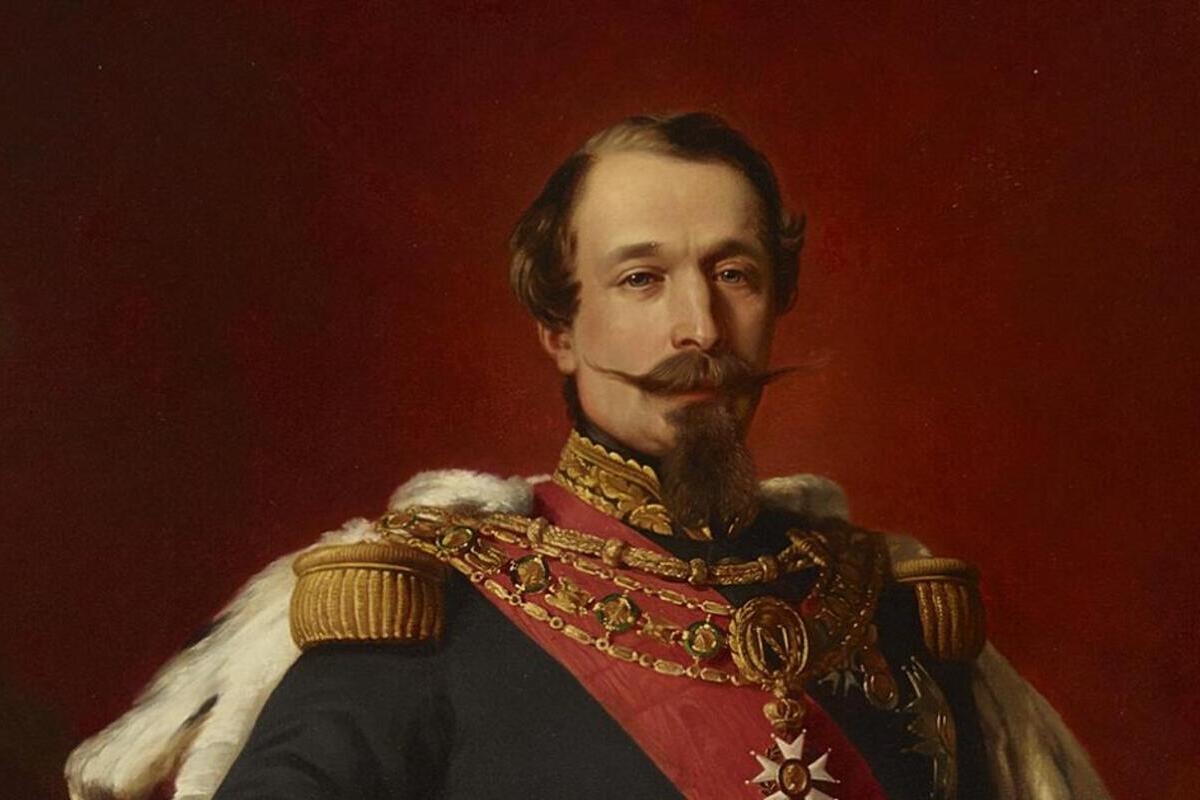Napoleon III is one of the most fascinating and controversial figures of 19th-century Europe. His life took him from exile to the imperial throne, and his rule marked a period of significant social, economic, and political transformation. Although often overshadowed by his famous uncle, Napoleon I, he played a crucial role in shaping modern France. His reforms, investments, and political strategies continue to influence the country to this day. Below is a collection of interesting and lesser-known facts that shed light on this complex historical figure.
- Napoleon III, whose real name was Louis-Napoleon Bonaparte, was the only president of the Second French Republic and the last monarch of France. He was elected president in 1848 and declared himself emperor four years later. This made him the first leader of France to rise to power through democratic elections and then turn the republic into an autocracy. His actions sparked intense debate both domestically and internationally.
- Despite his imperial lineage, Louis-Napoleon spent much of his life in exile. After the fall of Napoleon I, his family lost influence and he lived in Switzerland, Italy, and the United Kingdom. He attempted several failed coups in France, which led to imprisonment. It was only after the 1848 revolution that he legally returned to political life.
- Napoleon III was the first French president elected through universal male suffrage. This was a significant step in the development of European democracy, although he later dismantled the republic. His popularity among peasants and workers grew due to his successful use of Napoleon I’s legacy. He skillfully turned public nostalgia into political support.
- Once in power, Napoleon III initiated a massive urban renewal of Paris. Under Baron Haussmann’s direction, the city saw the creation of wide boulevards, parks, and modern sewage systems. These changes improved living conditions and also made it harder to build barricades during uprisings. As a result, Paris became a model for modern European cities.
- Napoleon III strongly supported the industrialization of France. During his reign, over 20,000 kilometers of railroads were built, banking was expanded, and new factories were opened. He also promoted telegraph networks and the development of maritime ports. His economic policy combined state control with liberal market reforms.
- His foreign policy aimed to enhance France’s influence in Europe and beyond. He participated in the Crimean War, supported Italian unification, and expanded colonial holdings in Africa and Asia. However, not all his ventures were successful, and many were heavily criticized. Foreign policy failures contributed significantly to his eventual downfall.
- His greatest defeat came during the Franco-Prussian War of 1870. After losing the Battle of Sedan, he was captured by Prussian forces and the Second Empire collapsed. The war led to the unification of Germany under Prussian leadership. France’s loss left a deep scar on the national psyche.
- After his release from captivity, Napoleon III went into exile in the United Kingdom. He spent his final years in Chislehurst, Kent, where he died in 1873 following complications from bladder surgery. His death received little attention in France, which had already transitioned into a republic. His legacy remained controversial for decades.
- He was a strong advocate for science, culture, and technological advancement. Napoleon III funded scientific expeditions, supported education, and promoted medical improvements, especially in the military. He helped open the Louvre to the public and financed archaeological research. He also laid the groundwork for France’s first social housing initiatives.
- Interested in political theory, he authored several works before coming to power. His book “The Napoleonic Idea” outlined a vision of a strong national state driven by social progress. His political philosophy blended authoritarianism with a concern for social justice. These ideas were widely discussed throughout Europe.
- His marriage to Spanish aristocrat Eugénie de Montijo was both a political alliance and a personal partnership. Empress Eugénie took an active role in court life and championed causes related to charity, medicine, and education. Their only son, the Imperial Prince, died while serving with the British Army in South Africa. This tragedy symbolically marked the end of the Bonaparte dynasty.
- For many years, Napoleon III was remembered mainly for military defeat and national humiliation. However, modern historians have reassessed his contributions. Today, he is recognized as a reformer who modernized France, even if his methods were authoritarian. His reign is now seen as a key transitional period in French history.
These interesting facts about Napoleon III reveal the depth of his character and the complexity of the era he shaped. You might not have known that behind the image of an emperor stood a visionary, strategist, and reformer striving to merge tradition with innovation. His urban, social, and cultural reforms left a lasting mark on France. Although still debated, Napoleon III remains a compelling subject for historical reflection.





